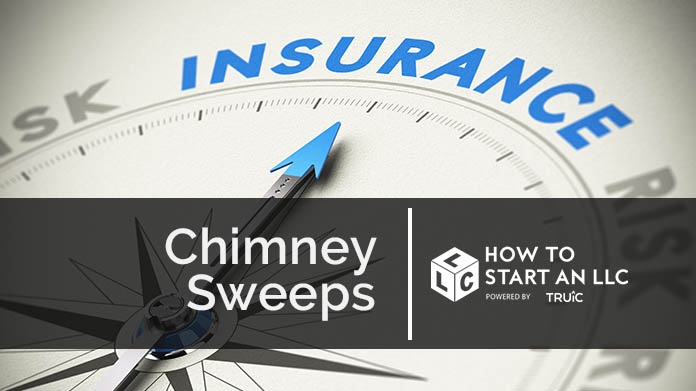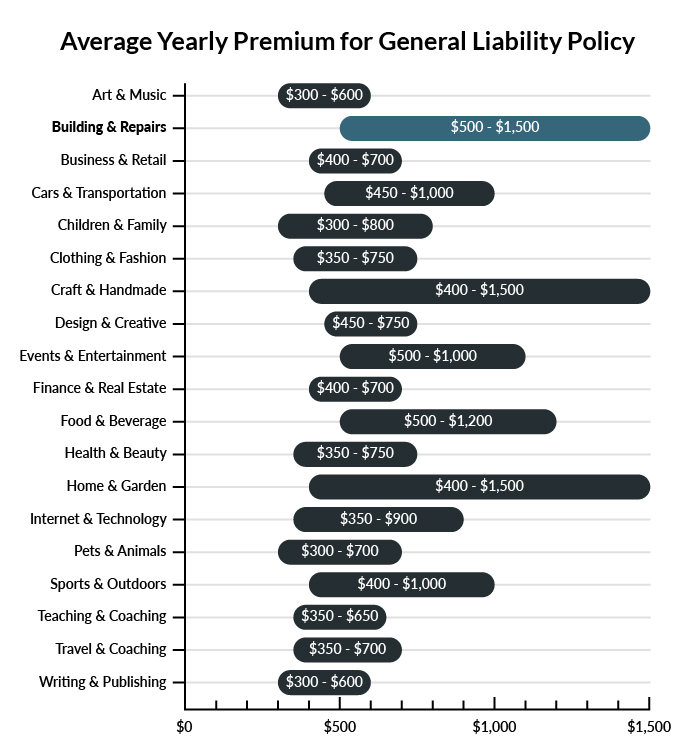Chimney Sweep Business Insurance
Getting insurance for your chimney sweep business is essential.
Chimney sweep businesses should have a way to make up for financial losses that arise from damage to their property, as well as losses resulting from compensation claims filed by customers or other individuals who are harmed by the business. The best way to do that is with insurance.
For example, neighbors may be affected by dust blowing away from sooty equipment. This may cause medical issues with those affected and prompt a lawsuit. Luckily, insurance to cover such a situation is readily available.
We’ll help you find the most personalized and affordable coverage for your unique business.

Recommended: Ergo Next Insurance is dedicated to matching small businesses with the right policy at the best price.
Best Insurance for a Chimney Sweep Business
General liability insurance is — generally speaking — one of the most important insurance policies for chimney sweep businesses.
Some of the risks general liability insurance covers are:
- Bodily injury
- Property damage
- Medical payments
- Legal defense and judgment
- Personal and advertising injury
While general liability insurance can cover a wide range of risks, it may not be sufficient to cover all the potential risks that your business may face. In order to ensure comprehensive coverage, it may be necessary to obtain specialized policies that are specifically designed to address these unique risks. These specialized policies may offer additional protection, such as:
- Commercial property coverage: A policy of this type would cover damage to any property you own, such as your cleaning kits. It will also cover damage to your business premises.
- Commercial auto insurance: Coverage may include the risk of loss resulting from damage to your vehicles as well as the liability risk of compensating others for any loss for which you are responsible.
- Business income coverage: If a storm or other adverse event causes you to shut your business down, this coverage will pay for lost profits and the costs of resuming normal operations.
Presently, you’ll be able to choose from two main kinds of insurance providers:
- Traditional brick and mortar insurers: This category includes some of the best known providers in the U.S., such as Liberty Mutual and Travelers Group, that have been in business since early in the last century and before.
- Online insurers: The modern insurance company is one like Ergo Next or OscarHealth that operates mostly through the internet. These new firms are insurtechs that assess risks, price products and deliver insurance services at less cost and more conveniently through an array of advanced digital methods.
Let’s Find the Coverage You Need
The best insurers design exactly the coverage you need at the most affordable price.
Cost of General Liability Insurance
On average, chimney sweeps in America spend between $500 – $1,500 per year for $1 million in general liability coverage.
Compare the average cost of general liability insurance for a chimney sweep business to other professional industries using the graph below.
Several factors will determine the price of your policy. These include your:
- Location
- Deductible
- Number of employees
- Per-occurrence limit
- General aggregate limit
You may be able to acquire general liability insurance at a discounted rate by purchasing it as part of a business owner’s policy (BOP) rather than as a standalone policy.
A BOP is a more comprehensive solution that includes multiple forms of coverage, such as business interruption and property insurance.

Find the Best Rate
Discover the best coverage at the lowest rate in our cheapest business insurance review.
Common Situations That General Liability Insurance May Cover for a Chimney Sweep Business
Example 1: While working at a client’s home, an employee damages a chimney. The client sues because that damage requires them to replace part of their roof. General liability insurance would cover your legal fees and any damages awarded in the lawsuit.
Example 2: You leave your cleaning equipment and ladder out while speaking with a client and the client’s son trips over your gear and breaks his arm. The injury requires an emergency room visit and several follow-up appointments, leading the client to sue for repayment of his son’s medical bills. General liability insurance would cover these medical costs and your legal fees stemming from the lawsuit.
Example 3: Your marketing manager starts an advertising campaign with a new slogan. A competitor claims your new slogan resembles theirs and files a lawsuit. General liability insurance would cover your legal fees and any damages awarded to the claimant.
Other Types of Coverage Chimney Sweep Businesses Need
While general liability is the most important type of insurance to have, there are several other forms of coverage you should be aware of. Below are some of the most common types of coverage:
Commercial Property Insurance
If you own the building from which you operate, you’re responsible for all business-related property housed there in the event of a fire, burglary, or natural disaster. Commercial property insurance would cover the cost of repairing or replacing your building, special equipment, and other business materials after an accident so you can recover quickly.
You can typically purchase commercial property insurance as part of a business owners policy (BOP).
Specialty Property Insurance Coverage Endorsement
Many commercial property insurance policies exclude — or limit coverage for — property you take off your business premises. With this endorsement, you can protect your business property while it’s in transit or at your client’s home. This endorsement also includes coverage for business interruptions and employee theft.
Commercial Auto Insurance
This profession requires travel to and from client sites, increasing your exposure to auto liability losses. Any vehicle you use primarily for business requires commercial auto insurance to protect the vehicle, driver, and others on the road in the event of an accident. Be sure to select a policy that covers not only accident-related vehicle repair costs and medical treatment for anyone injured, but also sufficient protection for any special equipment you carry in your vehicles. Also consider purchasing coverage higher than the state-mandated minimum coverage to safeguard your business from the unknown.
You can purchase commercial auto insurance as part of a business owners policy (BOP) or as a standalone policy.
Workers’ Compensation Insurance
Because chimney sweepers work away from the office, they face many risks outside of their control. Most states require businesses to carry workers’ compensation insurance for their part-time and full-time employees. This coverage protects your employees if they become injured at work or fall ill after a work-related accident. It not only covers an employee’s medical bills and lost wages if they need time to recover, but also any disability or death benefits stemming from a work-related accident. Your policy also should cover your legal fees if an employee sues your business for further damages.
Additional Steps To Protect Your Business
Although it’s easy (and essential) to invest in business insurance, it shouldn’t be your only defense.
Here are several things you can do to better protect your chimney sweep business:
- Use legally robust contracts and other business documents. (We offer free templates for some of the most common legal forms.)
- Set up an LLC or corporation to protect your personal assets. (Visit our step-by-step guides to learn how to form an LLC or corporation in your state.)
- Stay up to date with business licensing.
- Maintain your corporate veil.
Chimney Sweep Business Insurance FAQ
Yes, absolutely. You will need to first get a quote from an online business insurance provider like Ergo Next Insurance. Ergo Next allows you to then purchase a policy immediately and your coverage will be active within 48 hours.
A typical business owner’s policy includes general liability, business interruption, and commercial property insurance. However, BOPs are often customizable, so your agent may recommend adding professional liability, commercial auto, or other types of coverage to your package depending on your company’s needs.
“Business insurance” is a generic term used to describe many different types of coverage a business may need. General liability insurance, on the other hand, is a specific type of coverage that business owners need to protect their assets.
Yes. Purchasing business insurance is just as necessary and essential as other startup activities. In some instances, insurance will be required if the business is to operate legally.
For example, commercial auto insurance if it has vehicles; workers’ compensation insurance if it has employees. Importantly also would be liability insurance that protects against risk of bodily injury to others, as well as loss insurance to cover the first party.
Not necessarily. Certain exceptions may be written directly into your chimney sweep business insurance policy, and some perils may be entirely uninsurable.
Yes, an LLC is meant to create a legal barrier between your business and your personal assets and credit. If you haven’t formed an LLC yet, use our Form an LLC guide to get started.
An LLC doesn’t protect your business assets from lawsuits and liability– that’s where business insurance comes in. Business insurance helps protect your business from liability and risk.